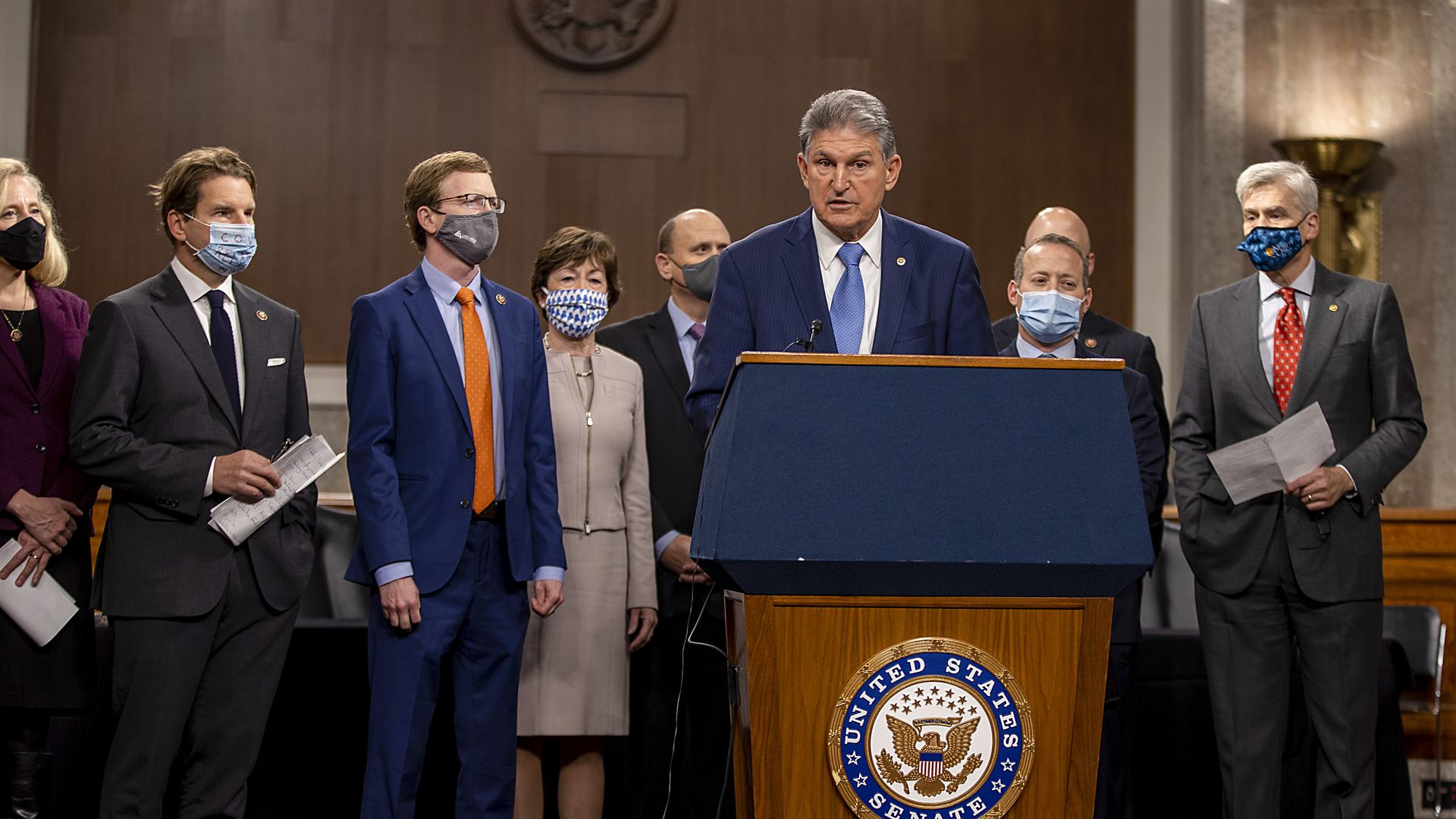
Sen. Joe Manchin (D-W.V.) speaks alongside a bipartisan group of lawmakers. Photo: Tasos Katopodis/Getty Images
A bipartisan group of senators has released the full legislative text for a two-part stimulus plan: a $748 billion package focusing on areas of agreement and a separate $160 billion bill that includes the most controversial provisions — additional funding for state and local government and liability protections.
Why it matters: While many lawmakers see this bill as the most realistic and concrete compromise on coronavirus relief that we've seen in months, House and Senate leadership currently view it as a marker for broader negotiations — not the final vehicle for aid.
The bottom line: Congress has until the end of the week to strike a deal on a stimulus bill that can be tied to longer-term spending legislation, so House Speaker Nancy Pelosi (D-Calif.) and Senate Majority Leader Mitch McConnell (R-Ky.) need to get moving.
Details: The $748 billion version billion bill includes all of the major priorities that both parties want to see in a relief package — enhanced unemployment benefits, an extension of the small business Paycheck Protection Program, more money for education and increased funding for vaccine distribution and coronavirus testing.
- But — similar to McConnell's proposal — the bill on its own does not include the areas where the parties are farthest apart in an effort to ensure that at least some of the package can pass.
- Instead, Congress has the option to vote for those issues — Democrats' demand for additional aid for state and local government and Republicans' push for (temporary) liability protections — in the separate, $160 billion bill.
- Critics of this approach say the slimmed down version defeats the purpose of negotiations, given it's much harder to pass contested legislation when it's not tied to the un-controversial provisions.
What neither proposal includes: Stimulus checks — something Sens. Bernie Sanders (I-Vt.) and Josh Hawley (R-Mo.) are demanding be included in a final package.
- The White House also supports directs payments.
What they're saying: "There's been a lot of gangs who didn't get to the final product, but we did. Let's get it across the finish line," Senator Mark Warner (D-Va.), a leading figure in the group said Monday.
- "It would be Scrooge-like to leave folks to lose their unemployment or their apartment."
- "We're the only game in town," Sen. Joe Manchin (D-W.V.) said. "This is about need and not greed."
